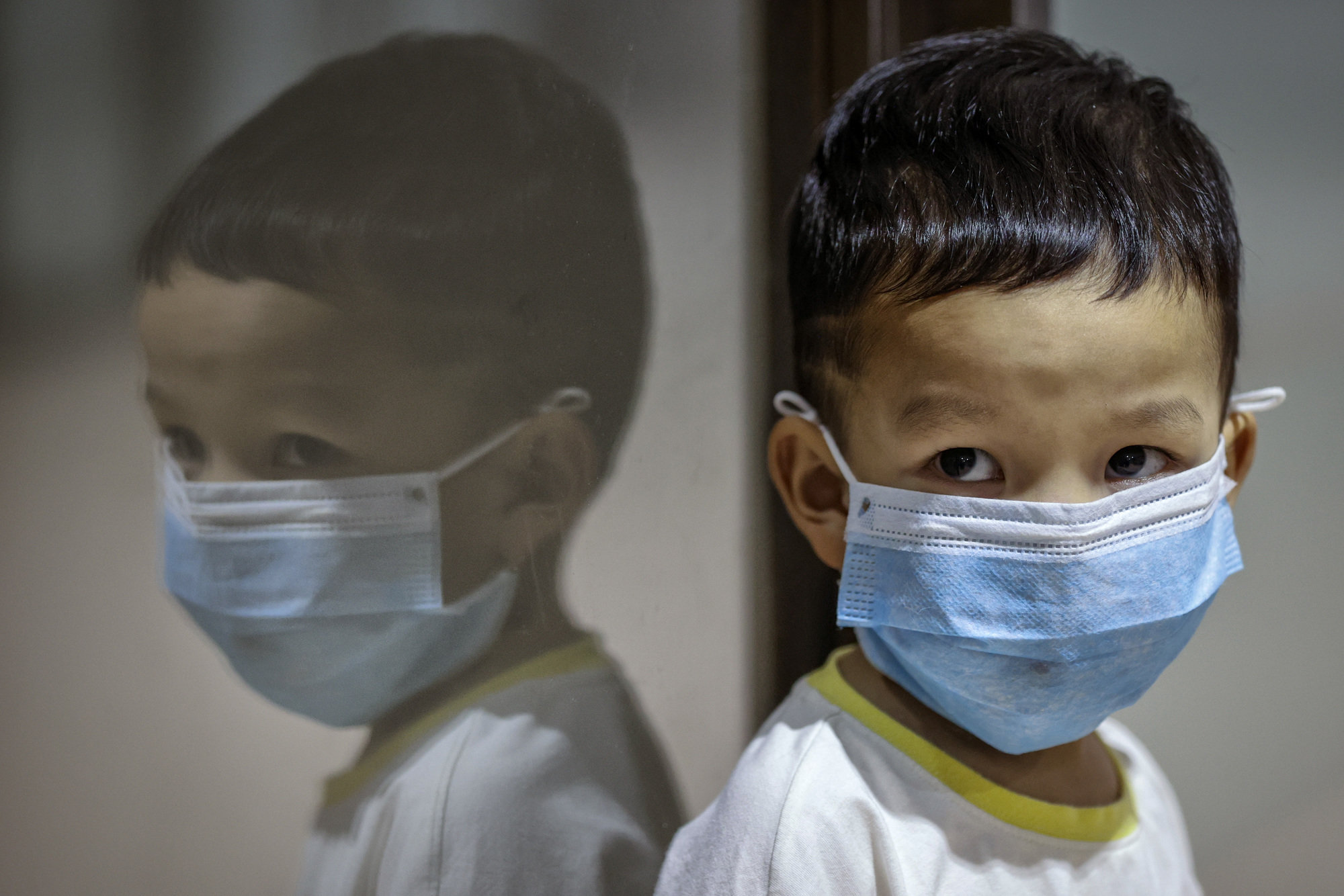
As panic over the coronavirus continues to dominate headlines and grip the world with fear, there has been one small bit of news that's comforting parents: Children don't appear to be as vulnerable to the virus — at least based on what we've seen so far. But according to some experts, that's not to say that they don't play a role in helping the virus spread.
To date, more than 92,000 cases of the illness have been reported worldwide, resulting in over 3,000 deaths.
The vast majority of those cases have occurred in people 49 to 56 years old, the New York Times reported. Unlike the flu, which affects between 7,000 and 28,000 children each year (and leads to between 130 and 1,200 deaths, according to the Centers for Disease Control and Prevention), only 100 coronavirus cases have been pediatric, and no deaths have been reported.
So far, it appears that at least in children, coronavirus symptoms have been relatively mild.
A study published in JAMA also analyzed nine Chinese infants who were diagnosed with the virus — all of whom contracted it from a family member. Although all of the babies were hospitalized and closely monitored, none have reportedly developed any severe complications.
According to health experts, symptoms of the coronavirus (or COIVID-19, as it's also known) typically appear two to 14 days after initial exposure and include shortness of breath, fever, and coughing.
"So far, it appears that more than 80 percent of the infections are pretty mild, no more severe than the common cold," Cody Meissner, professor of pediatrics at Tufts University School of Medicine and an infectious-disease expert recently told NPR. "And children appear to have even milder infections than adults."
From what doctors have been seeing, the virus is hitting older patients harder -- particularly those with chronic respiratory ailments.
In China, health experts have also noted that more men than women are contracting the virus, though they theorize this may have to do with the country's high smoking rates among males.
But as for why children appear to be "spared" from the virus' deadly grip? According to Bruce Aylward, an epidemiologist with the World Health Organization, that's "the million dollar question" of the moment.
"There are three possibilities," he recently told Vox. "Kids don’t get infected for some reason; they get infected but have a low expression of disease; they get infected and express disease like everyone else but we haven’t seen it because of schools being closed. I think the first and last aren’t the reality. So it’s that middle group."
There are also a lot theories floating around about this, Aylward said.
For one thing, "the receptors [Covid-19] binds to in the lungs aren’t very mature in children," he explained. "But the reality is we see this phenomenon up to 90 years of age, so that sounds unlikely. Second, maybe the four coronaviruses that cause colds confer some temporary immunity in kids."
But if that's the case, he wondered aloud, then why aren’t the elderly protected?
"We’ve got to get an antibody test [to test the population for antibodies to the virus] to know if kids are driving the epidemic and we just can’t see it," he concluded.
That final theory -- that kids may not be exhibiting extreme symptoms of the coronavirus but are still carriers -- is definitely a concern.
"It’s not that they’re not getting infection," Dr. Malik Peiris, a coronavirus expert at Hong Kong University, told Stat. "They’re not getting disease. They’re not getting sick. If they are infected, there is no reason to believe that they will not transmit."
Still, Peiris noted, this is all just a theory.
"There’s no evidence for any of this, but given the available data, that is quite a plausible scenario that one needs to think about," he said.
After all, children pick up viral infections at school all the time -- it's one of the many reasons flu season is such a worry for parents.
But if they're picking it up and not exhibiting symptoms — or exhibiting minor symptoms that merely resemble a cold — they're less likely to be tested, diagnosed, and treated. In the meantime, they'll likely be spreading it to others.
For now, though, medical experts are trying not to let the growing fears surrounding the virus throw the public into a panic — or overshadow a few very cold, hard facts. Chief among them: The common flu still poses a greater risk to Americans than the coronavirus.
Each year, the flu claims the lives of 12,000 to 61,000 Americans.
Last year alone, 34,000 people died from the virus. In comparison, the coronavirus has only been confirmed in 106 Americans to date — and many of them have been in people who recently traveled abroad or arrived from the quarantined cruise ship, Diamond Princess. So far, there have been six deaths.
In the last week, Vice President Pence has been vocal about the White House's aggressive approach to containing the virus by enforcing travel restrictions and working with the Food and Drug Administration on a vaccine for next year.
"The reality … is that for most people that contract the coronavirus, they will recover," Pence shared during CNN’s State of the Union over the weekend. "But for people that have other conditions, that would militate toward a worse outcome, that we could have more sad news."




